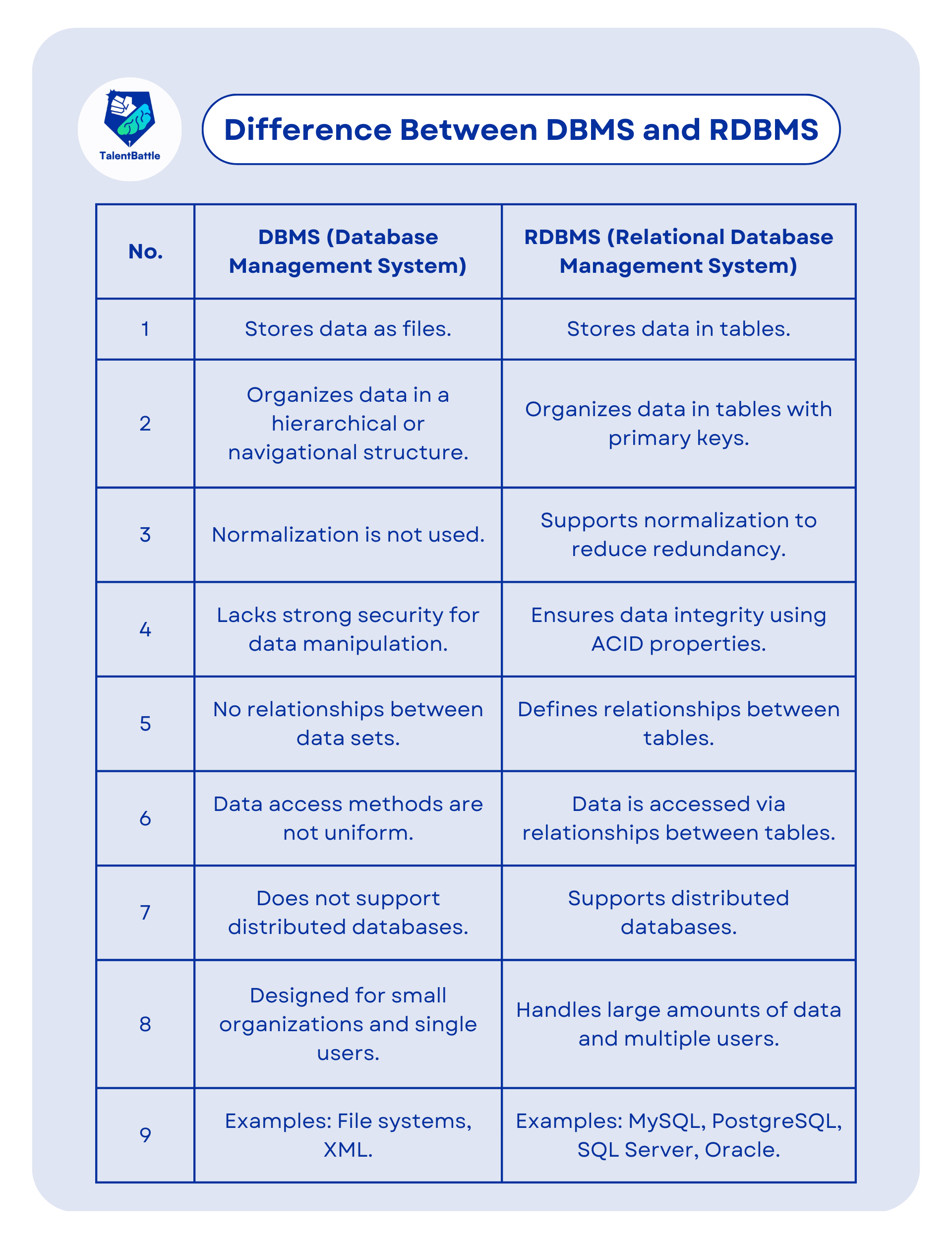CH_01 Database Management Systems (DBMS)
CH_02 DBMS Architecture
CH_03 DBMS Data Models
CH_05 DBMS Data Schemas and Data Independence
CH_06 Database Languages in DBMS
CH_07 ACID Properties in DBMS
CH_08 ER (Entity-Relationship) Diagrams in DBMS
CH_09 Cardinality in DBMS
CH_10 Keys in DBMS
CH_11 Generalization, Specialization, and Aggregation in DBMS
CH_12 Relational Model in DBMS
CH_13 Operations on Relational Model in DBMS
CH_14 Relational Algebra in DBMS
CH_15 Join Operations in DBMS
CH_16 Integrity Constraints in DBMS
CH_17 Relational Calculus in DBMS
CH_18 Anomalies in DBMS
CH_19 Normalization in DBMS
CH_20 Transaction Management in DBMS
CH_21 ACID Properties in DBMS
CH_22 Concurrency Control in DBMS
CH_23 Data Backup and Recovery in DBMS
CH_24 Storage System in DBMS


